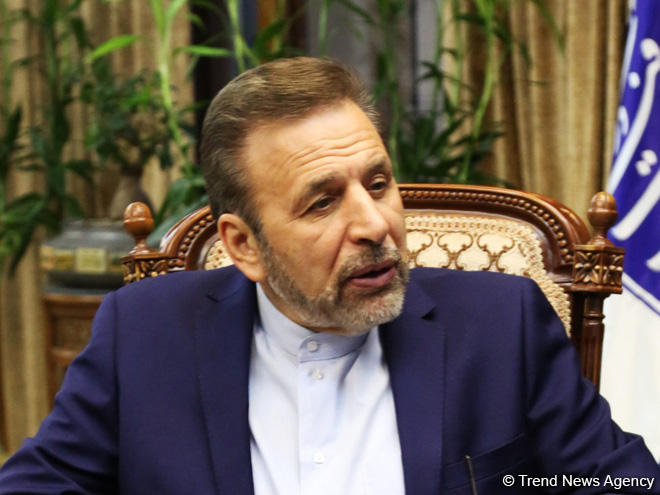BAKU, Azerbaijan, Feb. 5
By Elnur Baghishov - Trend:
According to EU High Representative for Foreign Affairs and Security Policy/Vice-President of the European Commission Josep Borrell’s statement, the European side does not want to use the mechanism to resolve nuclear disputes regarding the Joint Comprehensive Plan of Action (JCPOA), Head of Iran's presidential office Mahmoud Vaezi said.
“Borrell was informed about Iran's position during his visit to Iran,” Vaezi added, Trend reports referring to Islamic Republic of Iran Broadcasting (IRIB) company.
“Iran’s 5th step taken to reduce the number of commitments in JCPOA was a very important step,” the head of Iran's presidential office added. “The European side tried to react, but Iran’s position is firm.”
“Borrell stressed that the European side wants to build good relations with Iran in all spheres,” the head of Iran's presidential office said. “The European side says that the nuclear agreement is being protected and there is no better deal yet.”
Iranian Foreign Minister Mohammad Javad Zarif and EU High Representative for Foreign Affairs and Security Policy/Vice-President of the European Commission Josep Borrell met in Tehran on Feb. 3.
Borrell also met with Iranian President Hassan Rouhani and Iranian Parliament Speaker Ali Larijani.
The UK, France and Germany issued a statement regarding Iran's suspension of its obligations within JCPOA and announced that they launched a process to resolve nuclear disputes. If problems are not solved in this process, the matter will be discussed at the UN Security Council’s meeting.
In January 2016, JCPOA was launched between Iran and the P5+1 group (US, Russia, China, UK, France and Germany) in connection with Iran's nuclear program. In May 2018, the US announced its withdrawal from the deal and imposed sanctions against Iran in November of the same year.
In order to preserve the agreements reached as part of the JCPOA, the European signatories of the deal stated in January 2019 that a financial mechanism for maintaining trade with Iran called INSTEX was formed.
On May 8, 2019, Iran announced that it had ceased fulfilling its commitments regarding the sale of over 300 kilograms of uranium, as stated in the deal, basing its decision on the other signatories having not fulfilled their obligations. On July 7, Iran announced that it will not be fulfilling its commitments regarding the enrichment of uranium at 3.67 percent and the reconstruction of the Arak Heavy Water Reactor Facility as stated in the deal.
On Sept. 5, Iran announced that it will enrich uranium using next-generation centrifuges and will not mix it with the enriched uranium residues as part of the third step of reducing commitments in JCPOA.
On Nov. 5, 2019, Iran announced that it took the fourth step in connection with reducing its commitments to the nuclear agreement. So, uranium gas is being pumped to the centrifuges at the Fordow Fuel Enrichment Plant.
Iran took the last fifth step in reducing the number of its commitments within JCPOA. Iran no longer faces any restrictions on its nuclear program.






